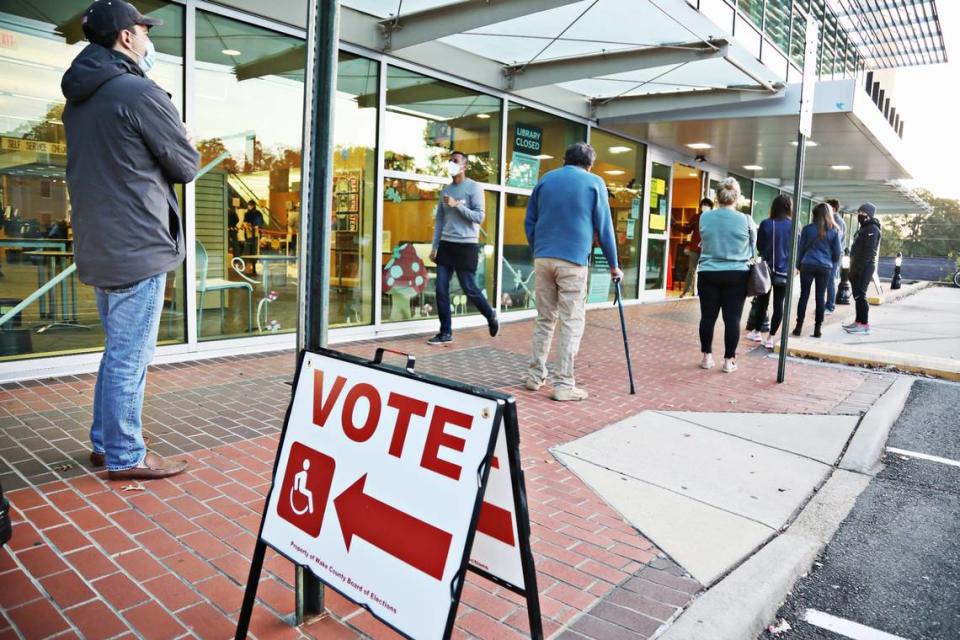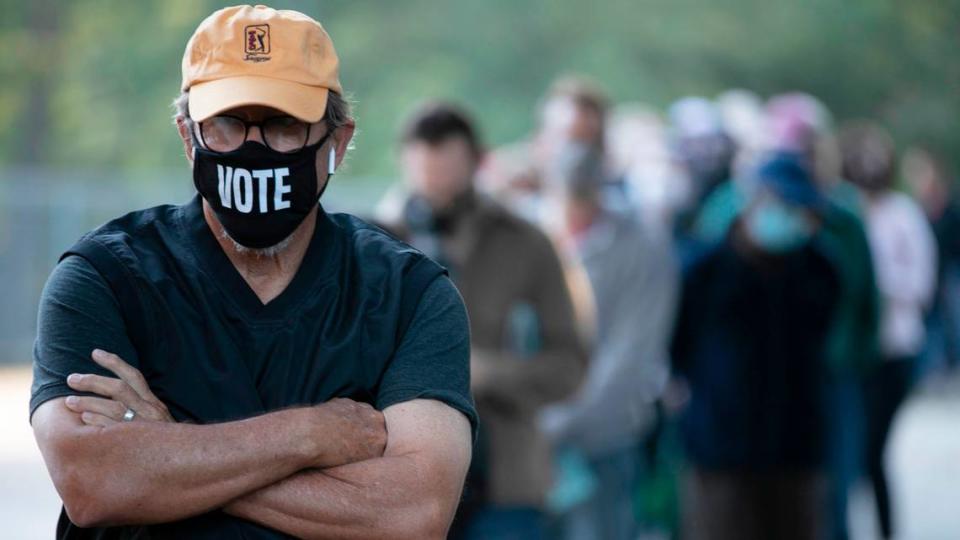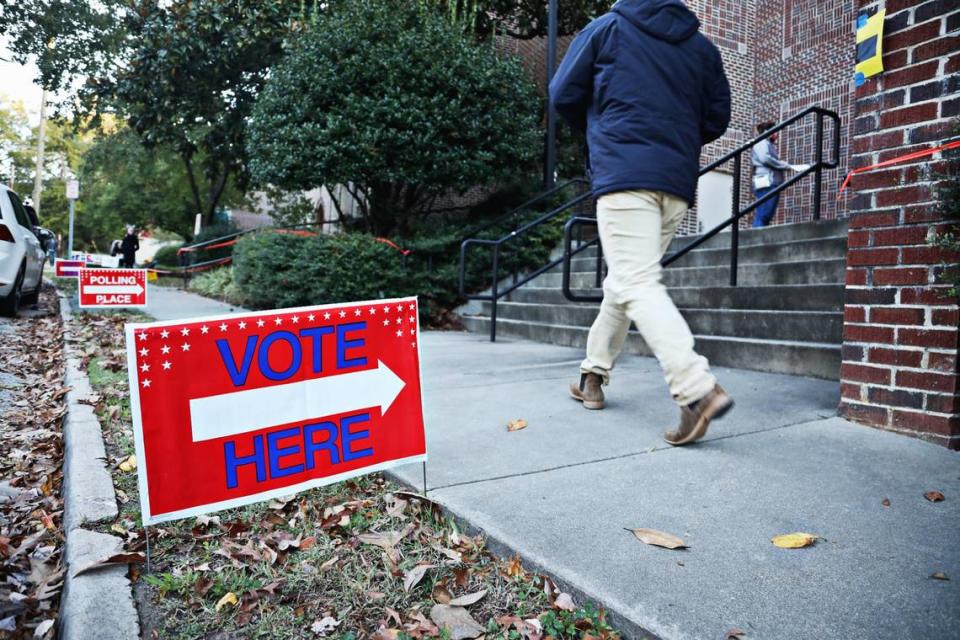‘We don’t know what’s in it.’ Lawmakers rebuke Raleigh for closed-door elections vote.
A bill postponing the city of Raleigh’s municipal election will head to the governor’s desk for possible approval, amid criticism from Wake County’s state senators Monday night over its lack of transparency.
“What I do have a problem with is the citizens of Raleigh haven’t had an opportunity to comment on any of this,” said Sen. Dan Blue. He said he wasn’t necessarily opposed to the proposed changes, but to the manner through which it came to the legislature.
“It’s not a public resolution because it was done in a closed meeting,” Blue said. “We don’t know what’s in it.”
The Raleigh City Council voted 7-1 this month to ask state lawmakers to postpone the 2021 municipal election and extend members’ terms by a year.
The public never got to see the vote, or the roughly hour-long discussion that led up to it June 1.
“The council provided direction to staff on the items listed on the closed-session motion,” said Raleigh Mayor Mary-Ann Baldwin, after the council members returned to the open portion of their meeting.
A public vote was not taken once the open session resumed June 1, nor a week later at a June 8 work session when the city attorney announced the city would pursue a state law change to permanently move the city council’s election to even years.
The City Council normally has elections every two years, in odd years, but the 2021 election needed to be postponed because the U.S. Census Bureau announced it wouldn’t be releasing districting data until the end of September. Five of the eight seats on the council are elected by geographic district meaning only people who live in the district can vote for the candidate, who must also reside in the district.
On Monday, Raleigh City Attorney Robin Tatum said Council member David Knight cast the lone vote against the decision June 1. Knight did not responded to a text message and phone call from The News & Observer on Monday seeking comment.
A vote in open session was not required, Tatum told The News & Observer.
“Given the legal issues related to an October 2021 election and the substantial consequences to the City that would occur if an election was held and later determined to be unconstitutional, the discussion and potential solutions were covered by the attorney-client privilege,” she wrote in an email.
“Those discussions are still confidential, although the decision to pursue the local bill is not, which is why it was announced on (June 8),” she wrote.
The City Council didn’t get a local bill, one way in which the state could make the changes. Instead, an amendment was added to Senate Bill 722 to change the city’s election. The change was unanimously approved by the N.C. House last week and the N.C. Senate approved the bill Monday night.
The five senators who represent Wake County voted against it.
Open vs closed
Local elected leaders are required to conduct city business in the public. There are just 10 exceptions under state law that allow a governing body to go into a closed session.
“The open meeting law is designed to make it so any official act occurs in public,” said Brooks Fuller, director of the N.C. Open Government Coalition.
“Voting by a city council is unequivocally an official act. So anytime a city council wants to vote on anything they have to do so in open session,” Fuller said. “Closed session voting is not something our law contemplates. If they have discussion in closed session and they want to take official action on them they need to come out of closed session and do a vote that is recorded in public and in the minutes, full stop.”
One of the exceptions is to preserve the attorney-client privilege, which the city council cited on June 1.
“General policy matters may not be discussed in a closed session and nothing herein shall be construed to permit a public body to close a meeting that otherwise would be open merely because an attorney employed or retained by the public body is a participant,” according to state law. “The public body may consider and give instructions to an attorney concerning the handling or settlement of a claim, judicial action, mediation, arbitration or administrative procedure.”
Frayda Bluestein, a professor of public law and government at UNC-Chapel Hill, said the city council had the authority to discuss the item with their attorney.
“And I think they have authority to come to a tentative consensus as to what they want to do about the issue,” she said. “A final vote should be made in open session.”
If a public body is concerned taking a particular action could prompt litigation, it’s appropriate to go into closed-session, he said.
“If you’re asking your attorney for advice as to your exposure regarding a lawsuit that is an attorney-client privilege conversation,” Fuller said. “If you are discussing among members of a city council whether it’s a good idea for the city of Raleigh to take a particular action, that is not attorney-client privilege discussion and that is the difference.”
An official act?
Because the council is seeking a change in state law instead of changing a local law, it may not be an official act requiring an official vote, Fuller said.
“There is no statutory process for this action, but I do think this is something that needs a majority vote,” Bluestein said. “However, if there were to be a question as to the validity of their request for the bill, the board could validate it with another vote in open session.”
During the June 8 work session, Council member David Cox said he wished to clarify his position and said he’d like the see the election moved to the 2022 primary in March instead of fall 2022.
“The consensus of the majority of council is to move forward with the local bill,” said Tatum during the meeting. “Mr. Cox’s change in his position does not change the position of council.”
On Monday, Cox said, it’s difficult to make an informed decision without public input and “transparency should be a fundamental guiding principle” for the city.
“There are legal ramifications for everything council does,” he said. “We really should have had public input and a public vote.”

 Yahoo Movies
Yahoo Movies 


